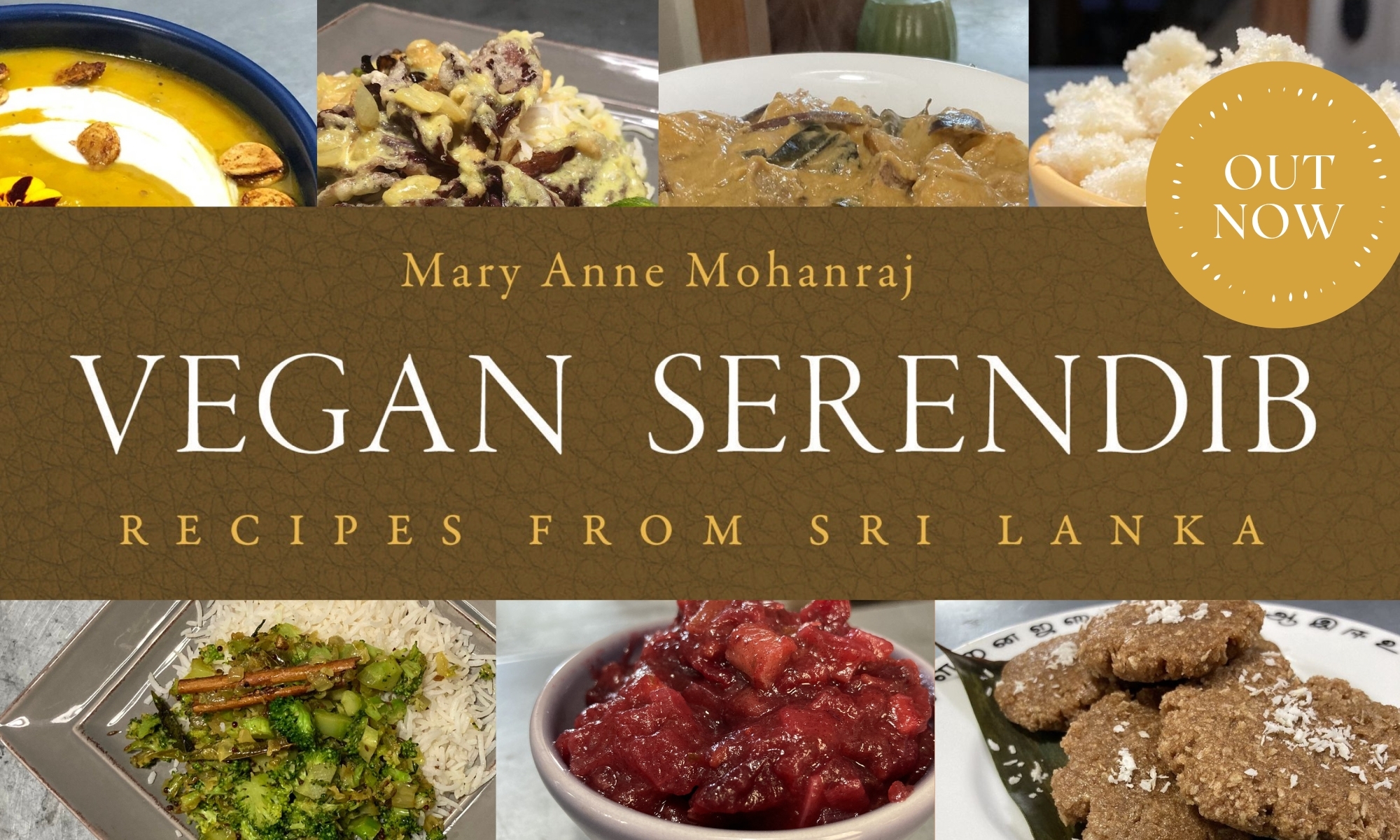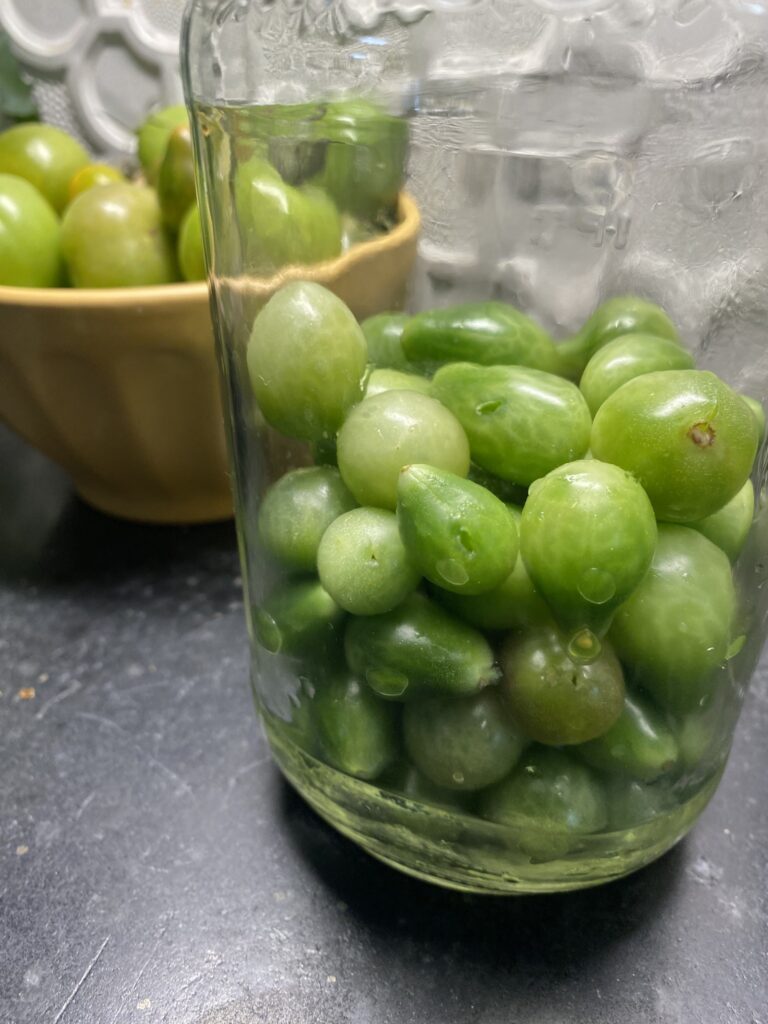This is exciting.
Carnivore Oak Park is going to start carrying a little of my food-themed jewelry and hand-sewn indie-designed tea towels; perfect for your holiday gifting! I’ll be dropping off these pieces later today (probably around noon), in two options – rich saffron threads, chili flake and gold leaf. Hyper-local – I live just a block away. ![]()
If you’re thinking of gifting, wouldn’t it be great to put together a luxe food-themed basket? Carnivore also carries my Sri Lankan cookbooks (both vegan and non-vegan versions, hardcover and paperback), so you could do a cookbook, some homemade Sri Lankan curry powder, a set of earrings and necklace, and a few tea towels to tie it all together. A gift a foodie would love.
Candy making morning…
Banana bread bread pudding.
Aka, what you do with dried out banana bread…waste not, want not.
I’m wondering what Saku was thinking with her vatallappam.
8 eggs? My recipe uses 4, which I think is pretty standard. She’s generally a much more skilled cook than me, and makes some beautiful dishes, but I wonder what happened here. I think she said it was her mother’s recipe, and I don’t want to blame her Amma, but someone seems to have led Saku astray…
(Yes, there’s a Sri Lankan on GBBO this season, and yes, I’m of course looking at every dish she makes and pondering how I’d approach it….)
My recipe is here – it doesn’t have the caramelized jaggery because we usually do that for caramel pudding in my family, which is a different dish.
Eliana and her daughter came by today and learned how to make cashew milk toffee.
I suddenly have a bunch of orders to get out the door (probably Monday). They had to leave before it had set, though, so they didn’t get to taste it, which is just tragic.
New recipe development
Chai-spiced pumpkin muffins with chocolate chips. They are very delicious, and my kids have been devouring them, but I forgot the baking soda, oops! So they didn’t rise properly.
I’m going to make another batch soon, I think, so will post photos & recipe then – the next batch will go in the autumn treat boxes, which I’m hoping to ship out next week. Lots of sweets-making in the days to come. Watch this space. ![]()
Quick-pickled the last green cherry tomatoes from the garden
(the ones that didn’t want to ripen). The end result is sharp, interesting, a little bitter – nice with an aged cheddar cheese on a charcuterie board…
I used this recipe.
This was fun
One of the libraries has a monthly spice club, and they had me do little curry powder packets for their club – Eliana packaged them up for me, with some recipes, etc., and it just came out very cute.
Desserts for the South Asia Institute launch party: Passionfruit buttercream on a Sri Lankan butter cake, layered with strawberries, mango, and lemon curd.
I’m still not a great cake decorator, but improving. Probably should’ve put more buttercream on the sides and added berries to the bottom of the cake, but I ran out of time, alas! (Note to self, allow at least 30 minutes for frosting cake in future. You are slow.)
Per usual, cashew milk toffee and passionfruit marshmallows. I would’ve made the dragonfruit-citrus white chocolate bonbons as well, and maybe the cayenne-chocolate roses, but ran out of time on those too! Oh well.





























